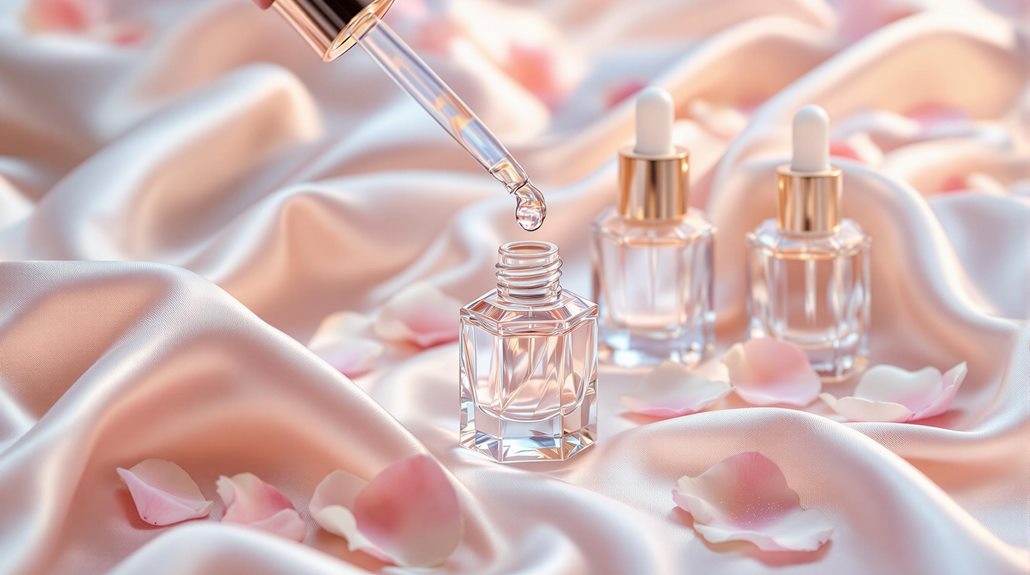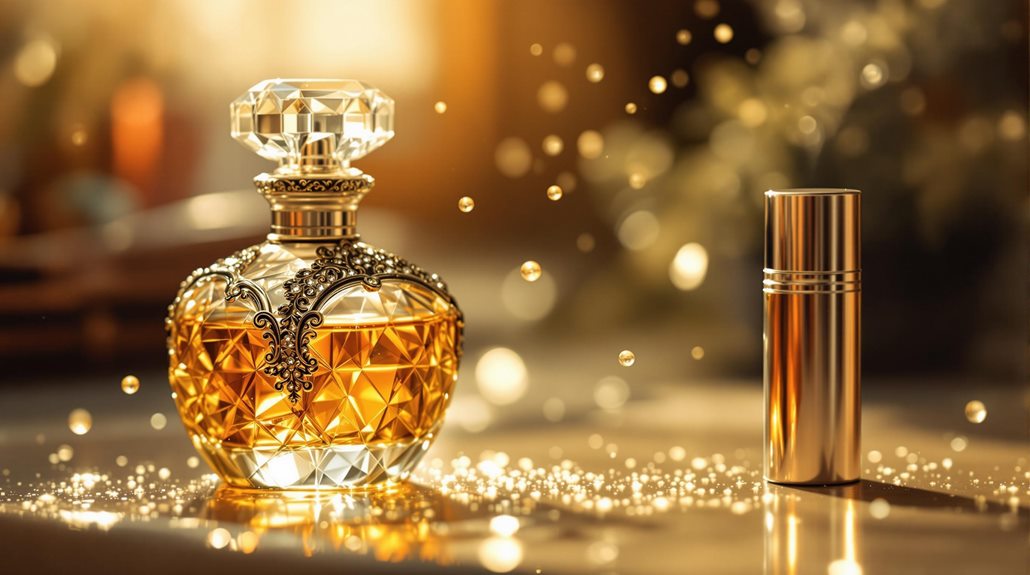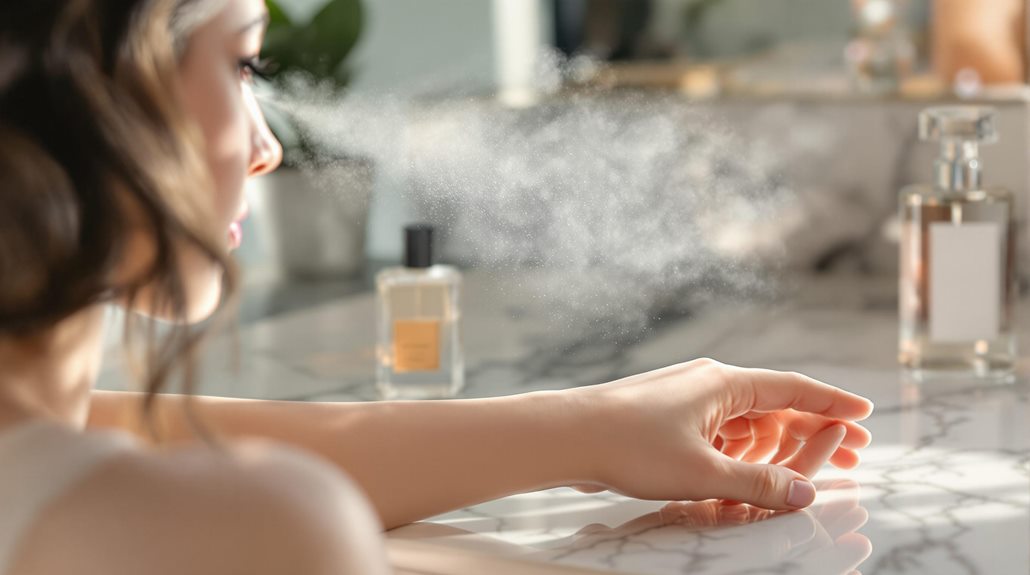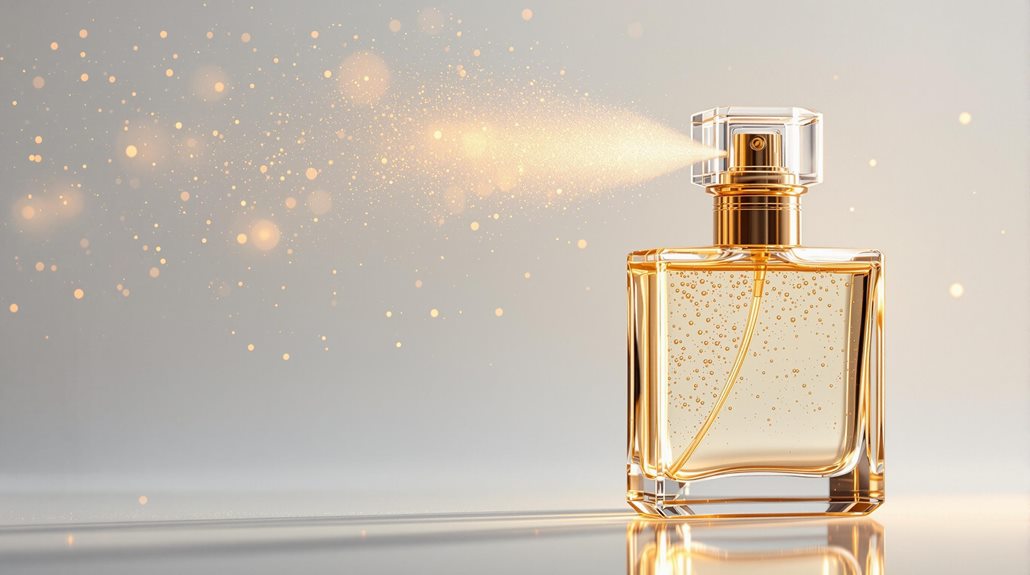Why Was Perfume Invented? A Look at the Origins and Uses of Fragrance
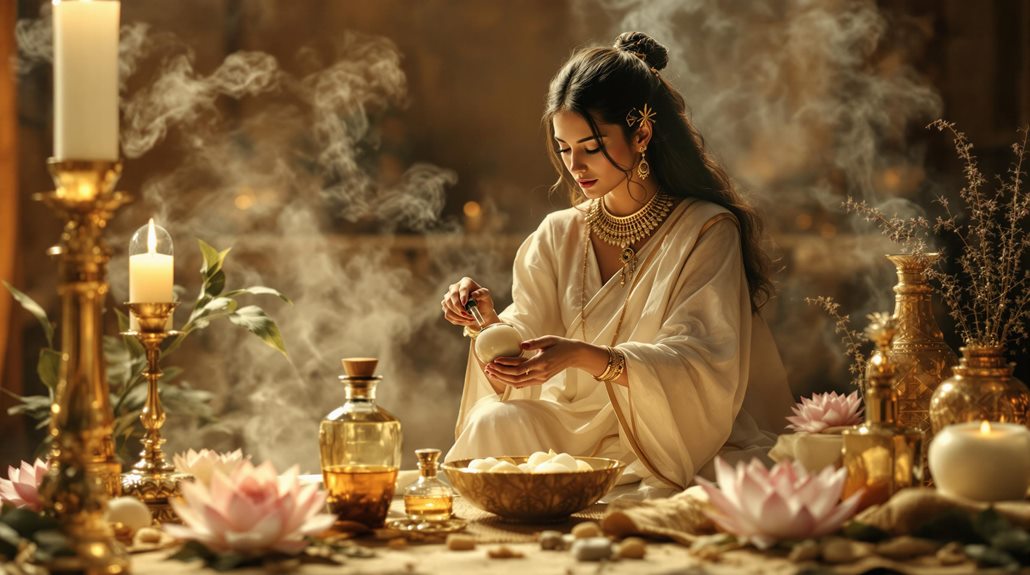
You'll find perfume's origins deeply rooted in ancient religious ceremonies, where fragrant substances connected humans with the divine. Early civilizations used aromatic oils and incense as sacred gifts to their deities, with specific scents dedicated to different gods. As these practices evolved, perfumes found their way into medicine, with ancient healers using fragrances to treat various ailments. The use of perfume then became a symbol of power and status, particularly among royalty and nobility. Through extensive trade routes and technological advances, perfume metamorphosed from a spiritual instrument into today's multi-billion dollar industry. The fascinating expedition from ancient temples to modern luxury holds many surprising revelations.
Ancient Religious and Sacred Rituals
How did perfume first enter human civilization? The origins of fragrance can be traced back to ancient religious ceremonies, where various cultures used scents to connect with their deities and create sacred atmospheres in their places of worship.
You'll find that ancient Egyptians were among the first to incorporate perfumes into their religious ceremonies, burning fragrant oils and resins as offerings to their gods. Similarly, ancient Greeks dedicated specific perfumes to different deities and used them extensively in their temple rituals and funeral rites. The practice wasn't limited to Mediterranean cultures - ancient Indian traditions, including Hindu and Buddhist practices, relied heavily on incense and fragrant oils to establish a spiritual environment during meditation and worship.
Essential oils and aromatic substances played a crucial role in Mesopotamian religious ceremonies as well. You'll uncover that these early civilizations shared a common belief: perfumes served as a bridge between the human and divine domains. Whether it was through burning incense, anointing with oils, or presenting fragrant resins, these ancient cultures believed that scents could facilitate communication with their gods and enhance spiritual experiences.
From Medicine to Beauty
Ancient healers first uncovered perfume's therapeutic potential, marking its early role as a medical treatment rather than a beauty product. In ancient Egypt, you'd find perfume being used to disinfect wounds and treat respiratory conditions, showcasing its importance in early medicine. The use of fragrant oils and plant extracts played an indispensable role in medicinal practices across the Middle East.
As perfume making evolved, the distinction between medicinal and cosmetic uses began to blur. You'll find that the transformation wasn't sudden - it happened gradually as people found that these therapeutic ingredients could also make them smell pleasant. The process of obtaining exotic ingredients from distant lands made perfume a symbol of wealth and privilege. Those who could afford these rare fragrance components would use them not just for healing but also as a mark of their social status.
What started as a medicinal practice in ancient times has changed into the modern perfume industry you know today. Yet, the therapeutic origins of perfume making haven't been entirely forgotten, as many ingredients still carry both curative and aromatic properties.
Royal Status and Power
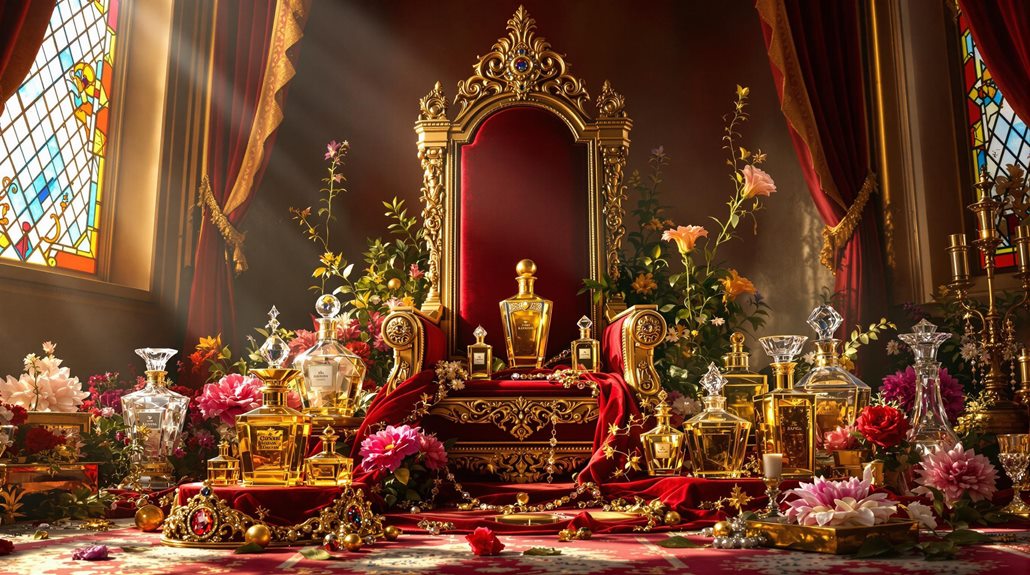
While perfume's medicinal roots were significant, its role in establishing power and authority would shape human civilization for millennia to come. Throughout the history of perfume, you'll find that rulers and nobles strategically used fragrances to set themselves apart from common citizens.
In ancient Mesopotamia and Egypt, you'd uncover that perfumes were used as a clear marker of divine authority and social status. The elite classes understood that natural fragrances could create an aura of power that commanded respect. Much like today's eau de parfum or eau de toilette, these ancient scents served as olfactory symbols of privilege.
This tradition continued through the ages, reaching new heights in European courts. Public places were scented to announce royal presence, while eau de cologne became a status symbol among nobility. You can trace this practice through countless examples, from the opulent French court of Louis XIV to the legendary Queen Elizabeth of Hungary, who used fragrance to reinforce their authority. The message was clear: if you could afford to smell divine, you were likely closer to the gods – or at least closer to power.
Trade Routes and Global Exchange
Trade routes' influential power played a critical role in perfume's evolution from local craft to global commodity. You'll find that ancient spice trade routes created crucial networks for transporting frankincense, myrrh, and other aromatic compounds across continents. The Silk Road became particularly significant, connecting the Middle East, Asia, and Europe while facilitating the exchange of precious floral essences and perfume-making techniques.
The colonial expansion of European powers transformed the perfume industry through:
- Exploration of new fragrance sources in the Americas, Africa, and Asia
- Establishment of trade networks for rare ingredients like ambergris
- Cross-cultural exchange of perfume-making techniques and recipes
- Development of major perfume centers, particularly in Grasse, France
You can trace modern perfumery's roots to these historical trade connections, which brought together diverse ingredients and knowledge from across the globe. As merchants traveled these routes, they didn't just transport physical goods - they carried the proficiency and traditions of different cultures, leading to increasingly sophisticated perfume formulations. These trading networks laid the foundation for today's global fragrance industry, where ingredients and inspiration continue to cross borders freely.
Modern Commercial Transformation
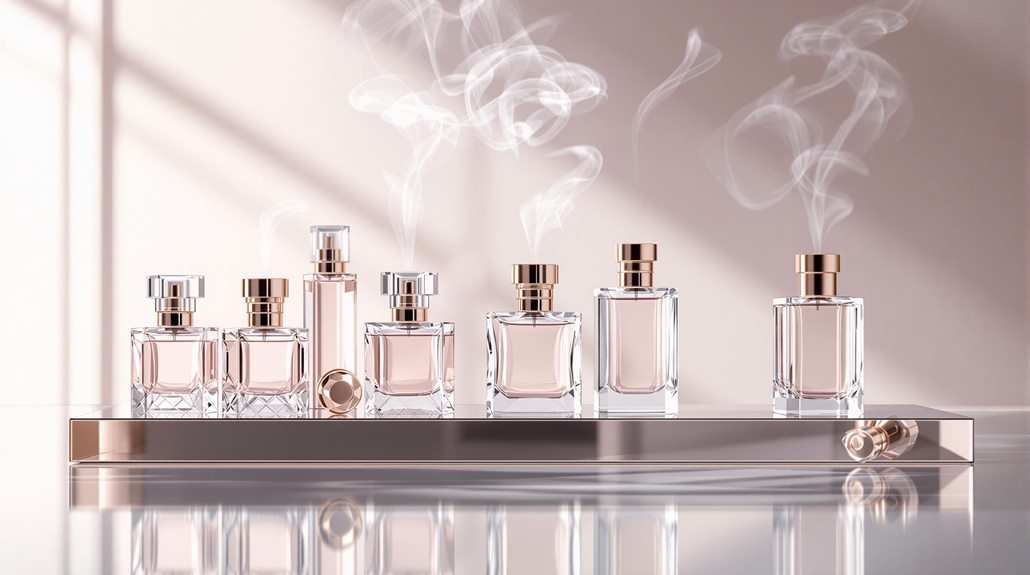
The nineteenth century marked a revolutionary shift in perfume production, metamorphosing it from an artisanal craft into a full-fledged industry. You'll find that this transformation was driven by mechanization and mass production techniques, which forever changed how perfume manufacture was approached. The introduction of synthetic fragrances particularly reinvented the fragrance industry, offering new possibilities that weren't achievable with natural ingredients alone.
During this period, you would've witnessed how perfume companies began focusing heavily on branding and marketing to distinguish themselves in an increasingly competitive market. The industry recognized that packaging and bottle design weren't just practical considerations - they became vital elements in creating brand identity and attracting consumers. You'd have seen elaborate glass bottles and distinctive logos becoming as important as the fragrances themselves.
What's particularly significant is how these changes democratized access to perfumes. The industry's expansion and modernization meant you didn't need to be wealthy to own a fragrance anymore. Through mass production techniques and synthetic ingredients, the perfume industry could now reach the growing middle class, making what was once a luxury item accessible to a broader range of society.
Conclusion
You've witnessed perfume's incredible path from sacred temples to modern boutiques. What began as offerings to gods transformed into healing remedies, then evolved into symbols of power and luxury. Through ancient trade routes and scientific advances, perfume's role has shifted dramatically. Today, you'll find fragrances everywhere, but they still carry that magical essence that first enthralled humanity thousands of years ago.

